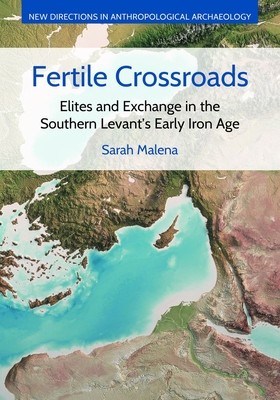
- We will send in 10–14 business days.
- Author: Sarah Malena
- Publisher: Equinox Publishing
- ISBN-10: 1800504748
- ISBN-13: 9781800504745
- Format: 17.8 x 25.4 x 2.2 cm, kieti viršeliai
- Language: English
- SAVE -10% with code: EXTRA
Reviews
Description
The southern Levant linked the major powers of the ancient Near East. More often than not, peoples of this land were politically and economically dominated by greater kingdoms and empires. During the transition between the Iron I and II Ages (late eleventh to early ninth centuries BCE) however, imperial occupation and active colonization diminished, and local leadership emerged. Fertile Crossroads examines how, despite the lack of large-scale institutional support throughout the ancient world, small-scale leaders persisted in long-distance interactions and established the foundations for Iron Age polities. Malena critically examines the most direct evidence of these developments with the aid of historical and anthropological approaches regarding intercultural interaction and social change. Despite challenging disparity among historical, literary, and archaeological sources, Fertile Crossroads demonstrates that interactions (including diplomacy, commerce, competitive emulation, and aggression) were taking place within the southern Levant and with more distant neighbors, such as Egypt, Arabia, Phoenicia, Cyprus, and even the Aegean. In this new application of interaction models and synthesis of evidence, Malena shows how small scale exchange had a significant impact on socio-political changes in the region, especially involving shifts in elite networks, territories, group identities, and political power.
EXTRA 10 % discount with code: EXTRA
The promotion ends in 22d.19:54:42
The discount code is valid when purchasing from 10 €. Discounts do not stack.
- Author: Sarah Malena
- Publisher: Equinox Publishing
- ISBN-10: 1800504748
- ISBN-13: 9781800504745
- Format: 17.8 x 25.4 x 2.2 cm, kieti viršeliai
- Language: English English
The southern Levant linked the major powers of the ancient Near East. More often than not, peoples of this land were politically and economically dominated by greater kingdoms and empires. During the transition between the Iron I and II Ages (late eleventh to early ninth centuries BCE) however, imperial occupation and active colonization diminished, and local leadership emerged. Fertile Crossroads examines how, despite the lack of large-scale institutional support throughout the ancient world, small-scale leaders persisted in long-distance interactions and established the foundations for Iron Age polities. Malena critically examines the most direct evidence of these developments with the aid of historical and anthropological approaches regarding intercultural interaction and social change. Despite challenging disparity among historical, literary, and archaeological sources, Fertile Crossroads demonstrates that interactions (including diplomacy, commerce, competitive emulation, and aggression) were taking place within the southern Levant and with more distant neighbors, such as Egypt, Arabia, Phoenicia, Cyprus, and even the Aegean. In this new application of interaction models and synthesis of evidence, Malena shows how small scale exchange had a significant impact on socio-political changes in the region, especially involving shifts in elite networks, territories, group identities, and political power.


Reviews